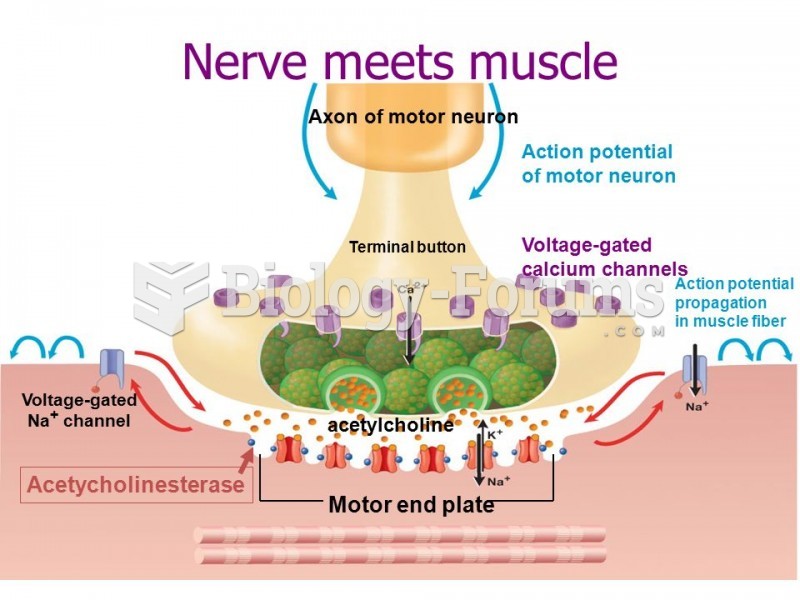|
|
|
The most common treatment options for addiction include psychotherapy, support groups, and individual counseling.
Between 1999 and 2012, American adults with high total cholesterol decreased from 18.3% to 12.9%
To maintain good kidney function, you should drink at least 3 quarts of water daily. Water dilutes urine and helps prevent concentrations of salts and minerals that can lead to kidney stone formation. Chronic dehydration is a major contributor to the development of kidney stones.
The human body produces and destroys 15 million blood cells every second.
Asthma-like symptoms were first recorded about 3,500 years ago in Egypt. The first manuscript specifically written about asthma was in the year 1190, describing a condition characterized by sudden breathlessness. The treatments listed in this manuscript include chicken soup, herbs, and sexual abstinence.






